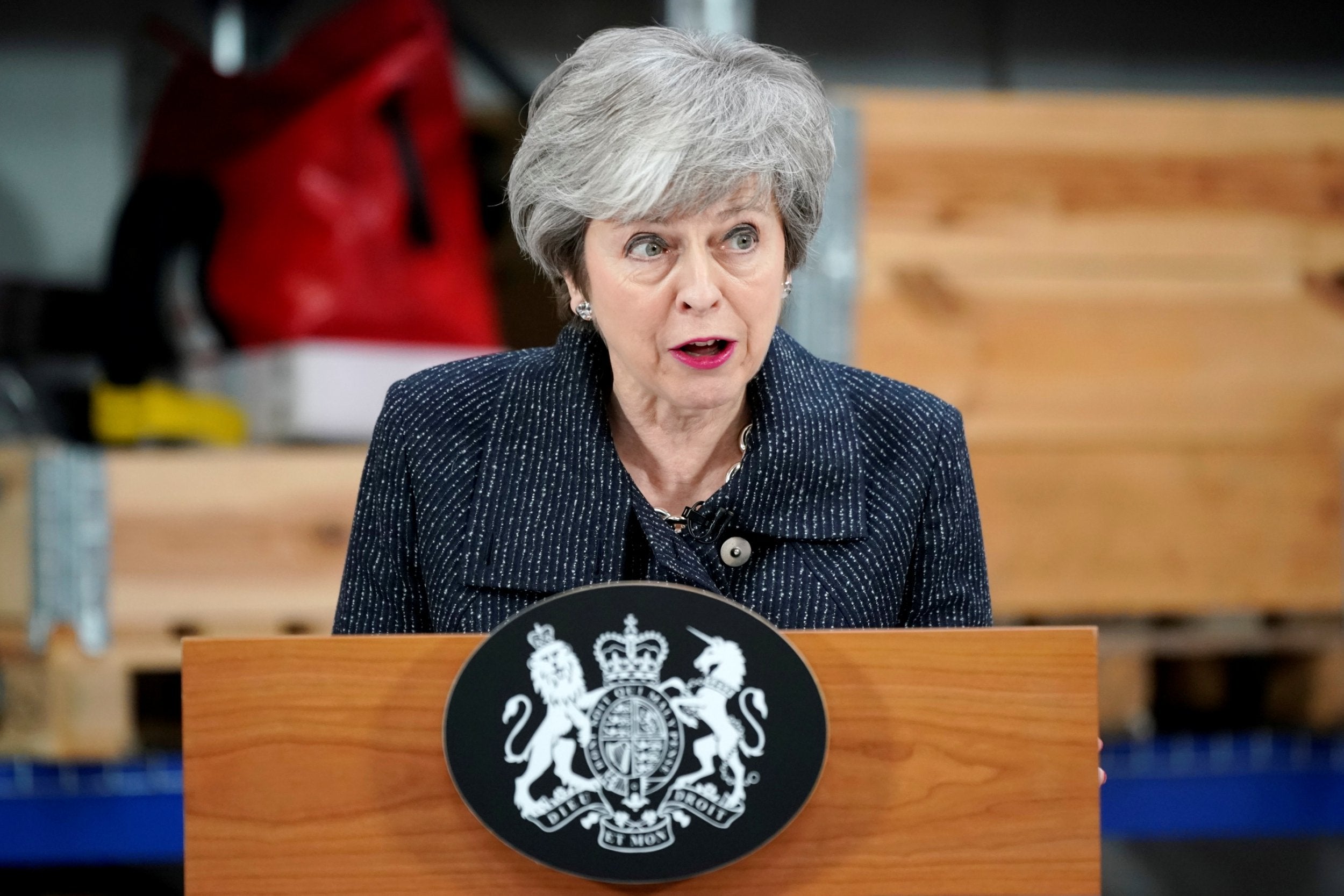What should we expect from the Brexit votes this week?
Analysis: Over the next few days Brexit could be secured, delayed or fundamentally called into doubt, as Ashley Cowburn explains


In just over a fortnight, on 29 March, Britain is set to leave the European Union. But it’s still possible that the date could shift, with MPs gearing up for yet another monumental week in British politics.
As the prime minister said herself in a last minute plea for support for her deal on Friday: “Reject it and no one knows what will happen.
“We may not leave the EU for many months, we may leave without the protections that the deal provides. We may never leave at all.”
Meaningful Vote 2.0
On Tuesday, Ms May will give MPs a second chance to vote on her Brexit deal, two months after it was rejected by 230 votes – the heaviest parliamentary defeat for any British prime minister in the modern era.
After losing the vote in January, Ms May said she would head back to Brussels with the aim of reopening the withdrawal agreement, and securing legally binding changes to the Northern Irish backstop. So far, she has failed on both counts, with the EU 27 united in resistance to such efforts.
Unless the prime minister secures last-minute concessions this weekend, in an eleventh-hour dash to Brussels, many in Westminster expect the second “meaningful vote” to be resoundingly defeated too.
However, if parliament springs a surprise and her deal passes on Tuesday, Brexit will be secured – although Ms May would probably have to request a short extension to the Article 50 timeframe so that MPs can debate and vote on key pieces of legislation that are required to be in place for exit day.
Assuming the prime minister does not win the day, the scale of defeat will be key.
If it is similar to January, it could be fatal for Ms May, who will undoubtedly face claims that she has wasted precious time in the last two months. Her deal will be considered dead.
In this case, the prime minister would probably be out of options, and will be under considerable pressure to go down a softer Brexit route. This would risk a potential split in her party while she seeks a majority for an alternative deal and effectively forms a parliamentary alliance with Jeremy Corbyn.
If the margin of defeat is significantly smaller – especially if it is in double figures, rather than triple – the prime minister may feel she can head back to Brussels and make further demands ahead of the next summit of EU leaders on 21 March. This would almost certainly require a short delay to the Brexit process.
Mr Corbyn may also decide the time is opportune – if Ms May loses badly – to put down a second no-confidence motion in the government in an effort to force a general election, though it still does not appear the Labour leader has the numbers in the Commons to win such a vote.
He has also committed his party to backing an amendment on a second referendum, so this could also be the week in which MPs finally test whether there is a majority for such a path. The consensus is that there is not, and it may be that proponents of a further public vote on Brexit do not test the Commons just yet.
Votes on no-deal and Article 50 extension
Crucially, if the prime minister loses the “meaningful vote” on her deal, she has vowed to hold two further votes this week: one on a no-deal Brexit (due to take place on Wednesday), and a second an approving an extension to Article 50 and delaying Britain’s exit from the EU (Thursday). This is where there might be fireworks.
It has been clear for some time that there is no majority in the House of Commons for a disorderly (or “cliff-edge”) break from the bloc. As such, it is likely that MPs will vote to take a no-deal departure off the table.
The following day there will be a vote on extending Article 50, and it is anticipated there will be a majority for this course of action.
Ultimately, it is up to the EU 27 whether to grant any extension: if they agree, terms and conditions might easily be attached. They could, for example, demand a lengthy extension rather than the two-month period preferred at Westminster.
Ms May will have to decide whether or not to give her own MPs a free vote on the contentious issue of the no-deal scenario. It is an incredibly divisive topic among Conservatives, and throughout the negotiations, the prime minister has deployed the threat of a no-deal outcome.
If the prime minister decides not to give Tory MPs a free vote, and whips them to keep no deal on the table, it could easily lead to a significant number of ministerial resignations from the Remain-leaning figures at the top of government who would probably rebel.
As the prime minister herself said, reject the deal and “no-one knows what will happen”; but what we do know is that Ms May is about to enter one of the most dangerous weeks of her time in office.
Got an unanswered question about Brexit? Send it to editor@independent.co.uk and we’ll do our best to supply an answer in our Brexit Explained series
Join our commenting forum
Join thought-provoking conversations, follow other Independent readers and see their replies
Comments